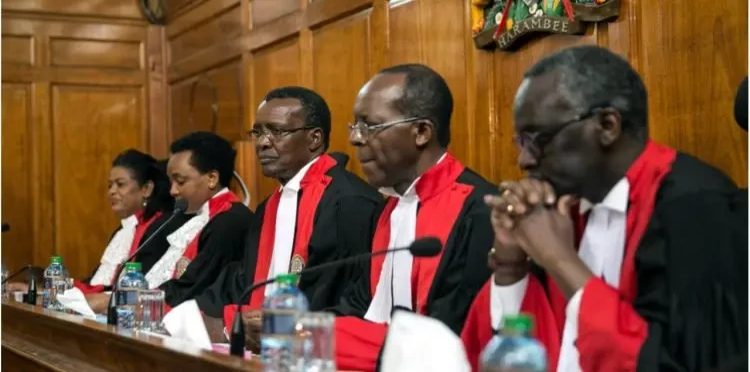Kenya’s Supreme Court has abolished the law which allows “50:50 division of matrimonial properties” after divorce.
Following the landmark ruling given by the five-man Supreme Court judges, couples are no longer automatically entitled to a 50 per cent share of property in case of a divorce.
The judges said spouses would have to prove their contribution to the matrimonial property amassed before sharing in the event of a divorce.
This is opposed to the controversial traditional assumption that one was entitled to a 50 per cent share.
The five judges used the maxim of equity and equality, interpreting article 4 of the Constitution on the rights of spouses in marriage.
They decided that equality, as envisaged in the law, implies that “Contribution to the acquisition of matrimonial property may not have been done on an equal basis, as a party may have significantly contributed more in acquiring property financially as opposed to the other party.”
They said;
“A party, though having not contributed more resources while acquiring the property, may have in one way or another, through their actions or their deeds, provided an environment that enabled the other party to have more resources to acquiring the property..”
Consequently, spouses who do not have a direct monetary contribution towards a family’s wealth but help with the roles commonly referred to as household chores could still rightfully demand a share of the wealth.
Their judgment was anchored on various decisions made by courts in other jurisdictions which they used to inform their final ruling. One of the cases cited by the judges is one made by Lord Justice Fox in Burns v Burns in 1984.
The judge had listed roles that would qualify a spouse as one who has contributed to the wealth in question. This include;
– Contributing to purchase price of the matrimonial property
– Contributing regularly to the monthly payments in the acquisition of such property
– Making a substantial financial contribution to the family expenses so as to enable the mortgage instalments to be paid
– Contributing to the running of and welfare of the home and easing the burden of the spouse paying for the property
– Caring for children and the family at large as the other spouse works to earn money to pay for the property
To sum up their resolutions, the judges ruled that implying that matrimonial wealth should be automatically shared at the ratio of 50:50 would bring huge difficulties within marriages.
According to them, such a precedent would encourage some parties to only enter into marriages, comfortably subsist in the marriage without making any monetary or non-monetary contribution, proceed to have the marriage dissolved then wait to be automatically given 50% of the marital property.
An excerpt of the ruling read in part;
“In agreeing with the above decisions, we must note that, in a marriage, the general assumption is that both spouses share everything, and on the face of it, both parties contribute towards the home or family, in one way or another, to whichever extent, however big or small.
“Again, and further to this, both spouses may also work and earn income, which inevitably, in most instances, always ends up being spent on the family unit. It may be the whole income or a substantial part of it, but ultimately, a percentage of it goes into the family.”
The ruling came after a complainant sought invalidation of a ruling made by the country’s Court of Appeal where the court had ordered him to share his property on a 50:50 ratio with his wife back in 2018.
The complainant argued that his wife had not contributed anything towards the acquisition of their house.






























Leave a Reply